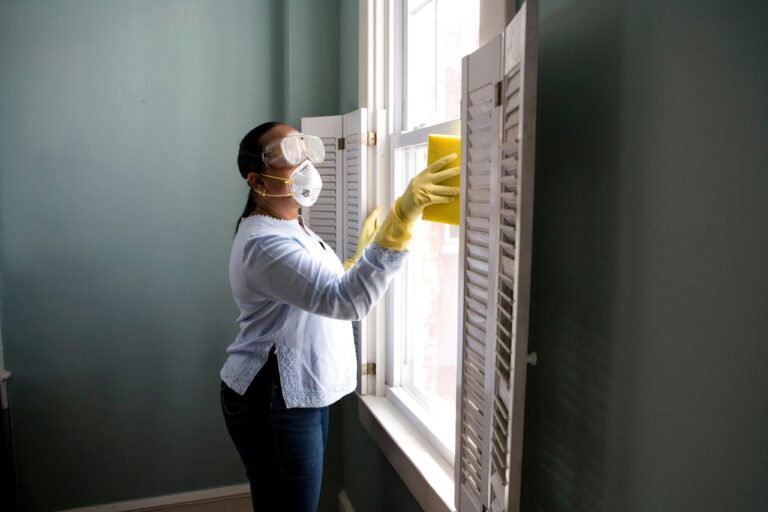A crucial part of corporate operations in numerous distinctive industries, including the cleaning chemical industry, is sustainability. Requests for economical products have expanded as customers’ awareness of their ecological footprint and natural concerns have grown. Producers of cleaning chemicals see receiving sustainability as a way to improve the planet’s wellbeing as much as fulfilling consumer needs.
However, what distinguishes a sustainable cleaning chemical manufacturer? The main elements that characterize cleaning chemical manufacturer sustainability in this sector are examined in this article.
Elements that make a Cleaning Chemical Manufacturer Sustainable
Here are some elements that makes a cleaning chemical manufacturer sustainable:
1. Sustainable Crude Materials
The crude materials that a manufacturer of cleaning chemicals employ shape the premise of their business. Eco-friendly, non-toxic, and biodegradable components are given top need by sustainable producers. All through their existence, these substances have a small effect on the environment since they are made from renewable resources. For example, conventional petrochemical-based compounds such as surfactants and enzymes can be substituted with plant-based partners, in this manner decreasing reliance on fossil fuels and minimizing carbon emissions.
2. Eco-Friendly Production Methods
Green manufacturing methods are utilized by sustainable producers to cut emissions, spare energy, and constrain waste. This involves employing water-saving techniques, streamlining mechanical procedures to cut down on waste, and utilizing energy-efficient machinery. Cutting-edge innovations like waste-to-energy change and closed-loop frameworks can greatly progress the maintainability of fabricating forms. Manufacturers can too become certified with organizations such as ISO 14001, which traces requirements for an efficient natural administration system. These certifications appear to be a dedication to ongoing natural performance improvement.
3. Eco-Friendly Packaging
When it comes to the supportability of cleaning items, packaging is crucial. Packaging materials that are recyclable, biodegradable, or composed of reused materials are favored by naturally conscious producers. A big effect can moreover be achieved by bringing down the amount of packaging fabric utilized and making bundling that’s simple to reuse. To diminish bundling squander, a few businesses are looking into cutting-edge arrangements counting bulk apportioning frameworks and reusable containers.
4. Item Efficacy and Detailing
Manufacturers of feasible cleaning chemicals prioritize creating goods that are both safe for the environment and highly successful. To make products that take less water, energy, and exertion to induce the required cleaning results, noteworthy research and improvement must be done. One example is concentrated details, which minimize the amount of item required and the related impacts on packaging and transportation. Moreover, it is vital to make sure that things are secure for the environment and for people. This involves remaining absent from dangerous substances that might hurt the environment and be hazardous to human wellbeing, such as phosphates, chlorine, and artificial perfumes.
5. Duty and Straightforwardness in the Supply Chain
A manufacturer that practices sustainability is responsible for the whole supply chain. This includes getting raw materials from vendors who follow ethically and ecologically mindful standards. Potential natural and social risks are recognized and mitigated with the use of supply chain transparency and traceability. Additionally, by supporting suppliers and communities that uphold morality and sustainability, manufacturers can participate in fair trade initiatives. Developing enduring connections with suppliers can promote cooperation and ongoing development in sustainability initiatives.
6. Social responsibility (Sustainability)
Sustainability requires corporate social responsibility to be at its center. A producer of environmentally inviting cleaning chemicals forcefully supports the well-being of its workforce, the community, and the environment. This could involve undertakings like:
• Guaranteeing safe working conditions, equitable compensation, and chances for career advancement are all aspects of employee welfare.
• Community engagement is the method of helping local communities by implies of charitable endeavors, instructive initiatives, and natural conservation projects.
7. Inventiveness and Continuous Enhancement
Producers that practice maintainability are committed to innovation and continuous change since it’s a dynamic field. They spend money on R&D to come up with imaginative ways to reduce their influence on the environment, increase the viability of their items, and boost sustainability initiatives. This may involve making new innovations, looking for substitute crude resources, and implementing industry best practices.
8. Certifications and Regulatory Compliance
One fundamental component of sustainability is adherence to environmental laws. Maintainable manufacturers habitually go over and past legal restrictions. A manufacturer’s adherence to strict natural and health guidelines can be affirmed by obtaining certifications from recognized organizations, such as the Cradle-to-Cradle Certified program or the More secure Choice program of the US Environmental Protection Agency.
9. Instruction and Inclusion of Consumers
A maintainable manufacturer advises and involves customers approximately the value of sustainability and how their purchases affect the environment. This will be as simple as outlining the points of interest their items have for the environment, giving counsel on how to use them more reasonably, and promoting recycling and bundle disposal done the correct way.
In summary
The cleaning chemical manufacturer has numerous facets of maintainability, counting environmentally friendly raw materials, naturally neighborly manufacturing methods, eco-friendly packaging, well-formulated items, transparent supply chains, corporate social duty, advancement, regulatory compliance, and customer involvement.
A producer of sustainable cleaning chemicals not only reduces its impact on the environment, but it also boosts the economy and society. The promotion of a more beneficial, more sustainable industry can be greatly supported by consumers and businesses selecting sustainable manufacturing.





